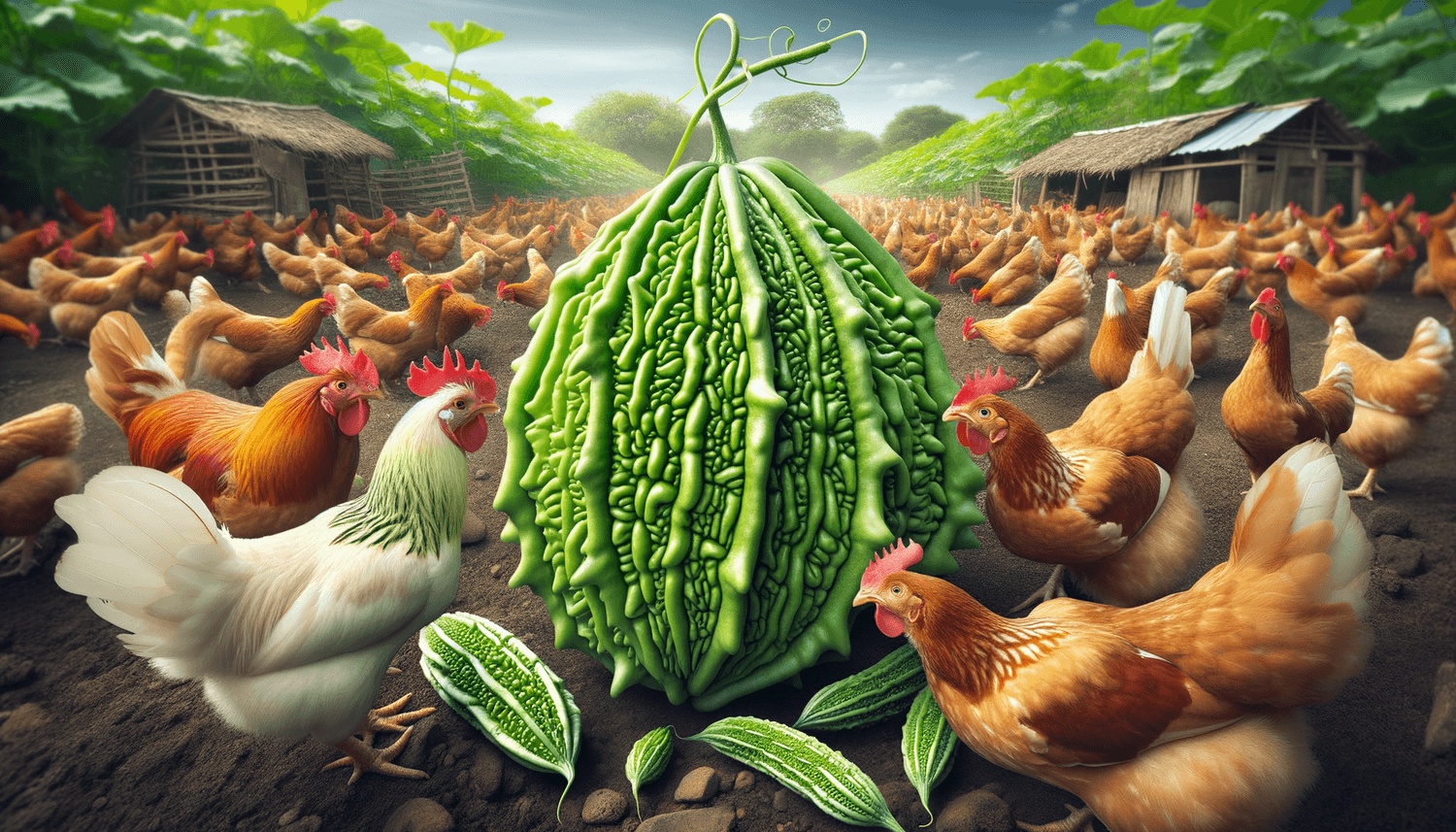Cluck-cluck, backyard chicken enthusiasts! Are you ready to explore the intriguing world of unique treats for your feathered friends? Today’s hot topic of debate is whether or not chickens can eat bitter melon. Before you start rummaging through your garden to find this peculiar treat, let’s embark on a culinary adventure to discover if bitter melon can bring delicious delight or be a potential hazard to your feathered companions. We’ll be pecking our way through the importance of a balanced diet, nutritional value, and even sharing tips on how to prepare this exotic snack for your beloved backyard flock. So stick around and get ready to bawk with delight as we unravel the great bitter melon mystery!
Can chickens eat bitter melon?
Yes, chickens can safely consume bitter melon, as it does not pose any toxic risks for them. However, due to its strong and bitter taste, chickens might not find it as appealing as other treats. It is important to monitor your flock’s reaction to bitter melon and provide a variety of foods to ensure a balanced diet for your backyard chickens.
Finding the balance in a chicken’s diet
Just like humans, chickens thrive on a balanced diet for optimal health and well-being. A well-rounded diet ensures that your feathered friends receive all the necessary nutrients for growth, egg production, and maintaining a healthy immune system. The foundation of a balanced chicken diet is high-quality chicken feed.
Chicken feed should make up around 80-90% of their diet, providing essential nutrients like protein, vitamins, and minerals needed to keep them in tip-top shape. It is important to choose the right chicken feed tailored to your flock’s life stage and specific dietary requirements. The remaining 10-20% of their diet can consist of treats like fruits and vegetables, which offer additional nutrients and keep things interesting for your backyard flock.
Nutritional value of bitter melon for chickens.
While bitter melon may not be a primary choice of treat for chickens due to its taste, it does provide some nutritional benefits when consumed. Bitter melon is a low-calorie vegetable that is high in fiber content, which can assist in maintaining good digestive health for your chickens. The high water content in bitter melon also helps with hydration, especially during hot summer months when chickens need extra fluids to stay cool and comfortable.
Furthermore, bitter melon is packed with various vitamins and minerals that can support chickens’ overall health. Particularly rich in vitamins A and C, which are essential for a robust immune system and promoting healthy skin, eyes, and feathers. Bitter melon also contains modest amounts of vitamin K, as well as minerals like potassium, magnesium, and calcium. These important nutrients contribute to bone development, heart health, and proper nerve functioning in chickens.
In summary, bitter melon is a safe and nutritious treat for chickens. Although its bitter taste may not be as enticing as other fruits and vegetables, the vitamins, minerals, and hydration benefits make it a valuable addition to your flock’s diet when offered occasionally and in moderation.
Nutrition table of bitter melon for chickens.
| Information | Description |
|---|---|
| Nutritional Value | Rich in vitamins A and C, contains vitamin K, potassium, magnesium, and calcium. |
| Suggested Serving Size | A few small pieces per chicken, chopped and mixed with other treats. |
| Safe Feeding Practices | Offer in moderation, as part of the 10-20% treats in a balanced diet. |
| Preparation | Wash and chop the bitter melon into small pieces, discarding any seeds. |
| Potential Risks | May have laxative effects if consumed in large amounts, monitor for changes in droppings. |
| Hydration | High water content provides hydration during hot weather. |
| Digestion | Fiber content supports good digestive health. |
| Seasonal Availability | Typically available during summer and fall months. |
| Other Benefits | Supports immune system, promotes healthy skin, eyes, and feathers, and aids in bone development, heart health, and proper nerve functioning. |
Introducing bitter melon to your flock
As with any new treat, it’s important to introduce bitter melon to your chickens slowly and observe their reactions. Start by offering a small amount of chopped bitter melon mixed with some of their favorite treats. This will help them become acquainted with the new food and encourage them to give it a try.
Since chickens have individual taste preferences, don’t be surprised if some of your flock members enjoy bitter melon while others are not as thrilled by the taste. However, give them time to warm up to the new treat, and their curiosity may get the better of them.
Alternative treats for picky chickens
If bitter melon proves to be a hit-and-miss treat for your backyard chickens, there are plenty of other nutritious options to choose from. Offer a variety of fruits and vegetables such as watermelon, cantaloupe, berries, apples, leafy greens, and peas to keep your flock’s tastebuds entertained while also ensuring they receive essential nutrients.
Remember that a balanced diet should be the primary focus for your chickens, so be mindful of the 10-20% treat rule when providing them with fruits, veggies, or kitchen scraps.
Final thoughts
In conclusion, bitter melon is a safe and nutritious treat option for backyard chickens. Although it may not be their favorite due to its bitter taste, the potential health benefits make it worth trying. Remember to always monitor your flock’s reaction to new treats and ensure they are receiving the optimal balance of nutrients from their primary diet of chicken feed.

















